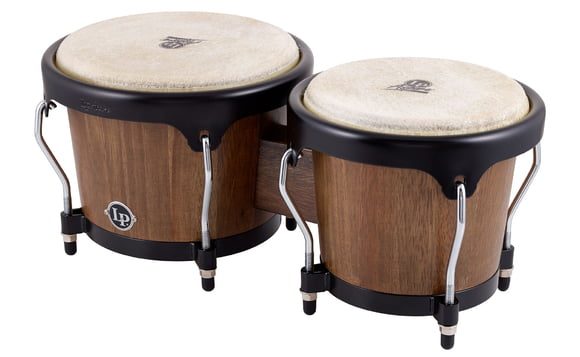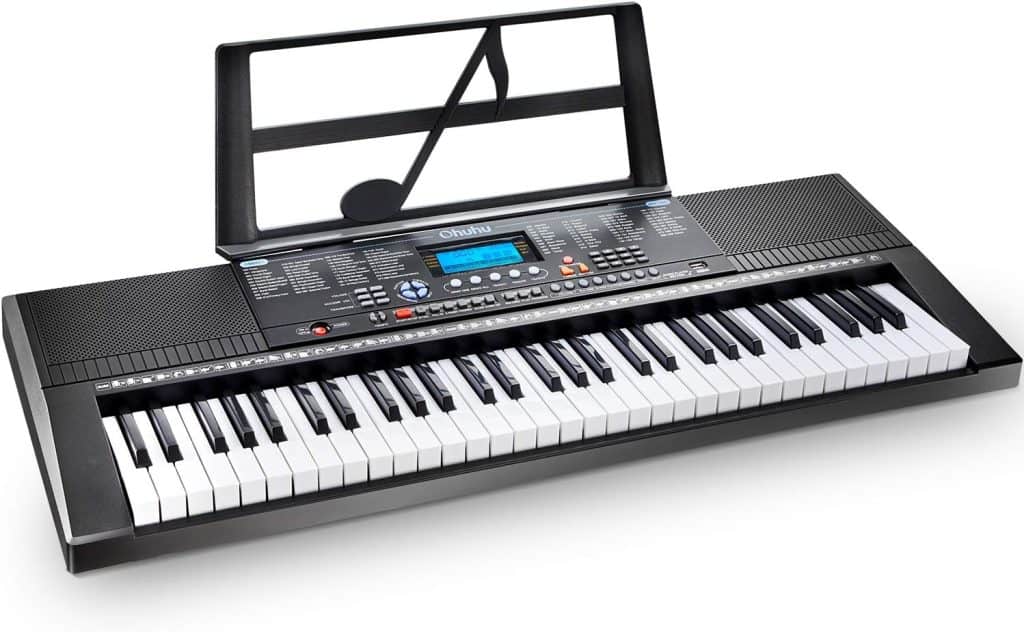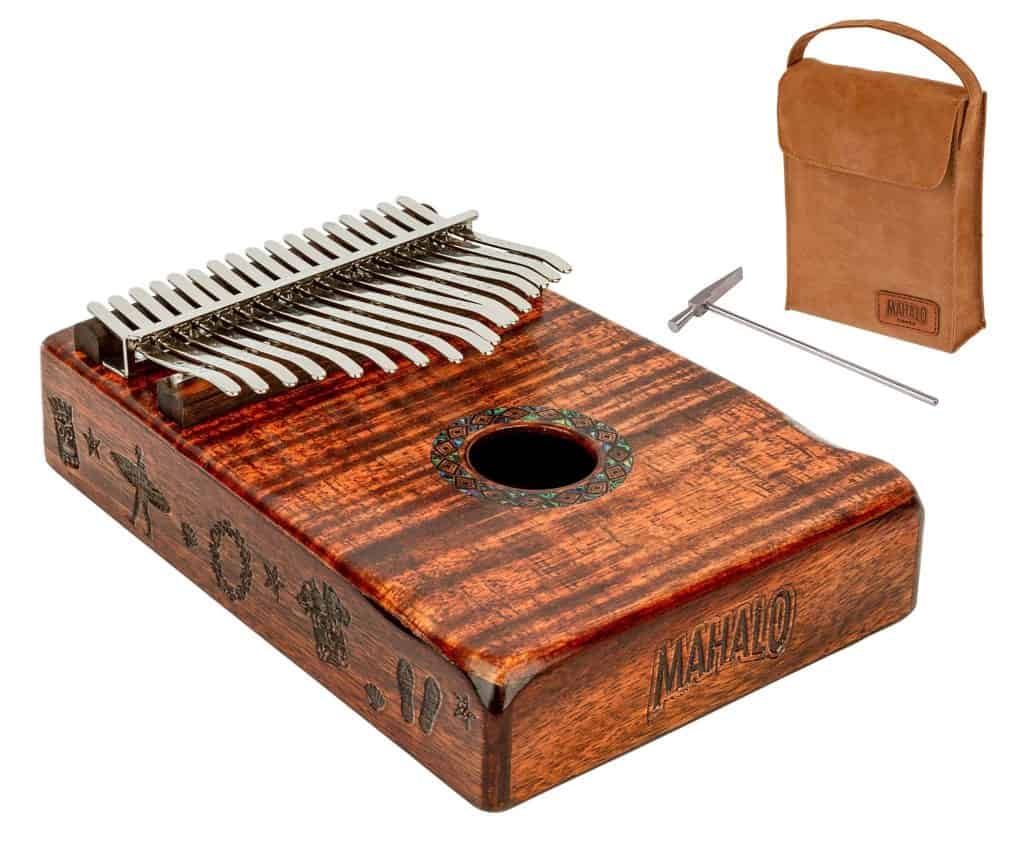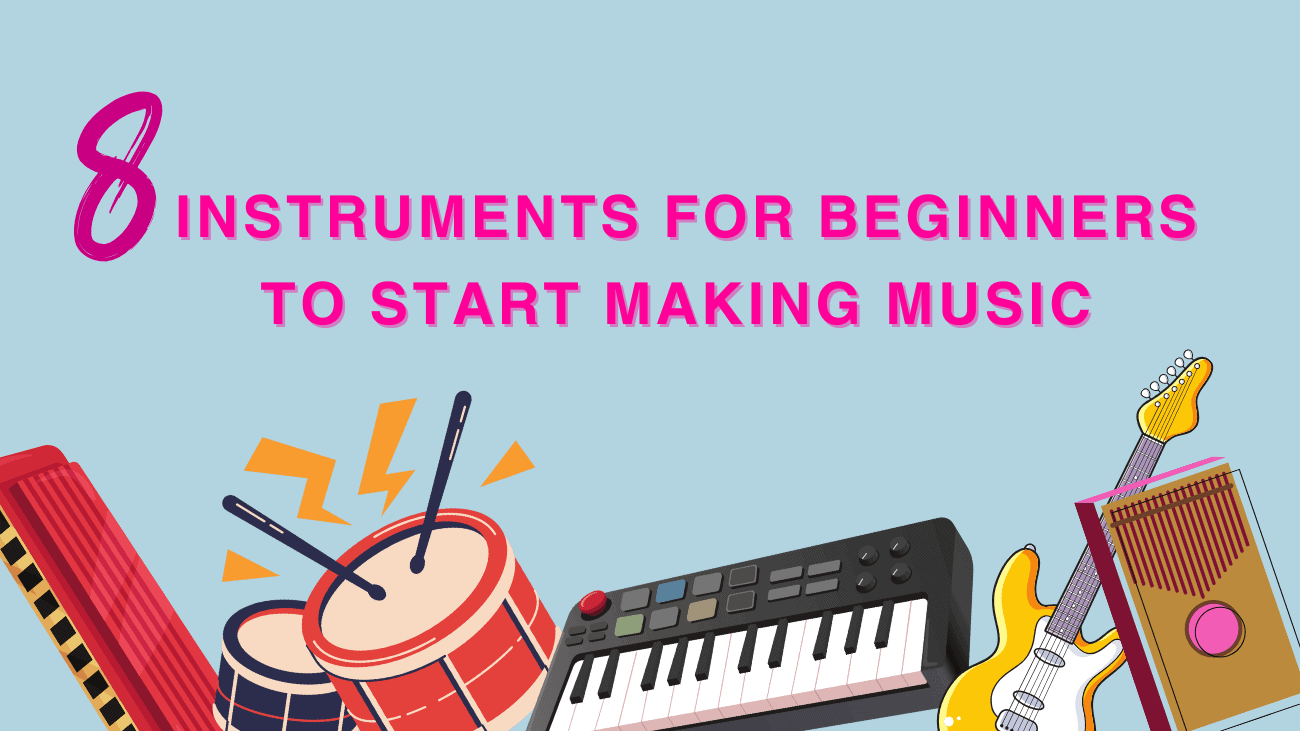Deciding to pick up a new instrument opens doors to meeting fellow musicians, sharing your music with loved ones, and who knows, maybe even crafting your own songs someday. But for beginners, what are the most approachable instruments to start with?
The reality is, that mastering any instrument demands practice and commitment. You’ll need to regularly play to develop muscle memory.
Additionally, grasping basic music theory, like chords, scales, and melody, is essential.
Fortunately, the instruments I’ll discuss in this article offer accessible entry points into learning, playing, and composing music.
Without further delay, let’s dive into the top 9 easiest instruments to learn.
1. Harmonica

Here’s a fantastic instrument you can pick up and play right away.
The mechanics are easy – just put the harmonica in your mouth and blow in and out.
Since harmonicas are designed for specific key signatures, all you need to do is match your harmonica to the key of the song you’re playing or writing.
That’s why you’ll often find multiple harmonicas sold together, each one matching different keys.
The harmonica is so straightforward that sometimes you’ll see it played alongside a guitar, using a harmonica holder for support.
As you progress, you can work on advanced skills like bending the notes and playing individual notes and melodies, much like Stevie Wonder did famously on Isn’t She Lovely.
2. Hand drums

The idea is simple – just hit it! Most people can easily keep a beat or play along with a song on a hand drum.
However, these instruments lack a melodic element. You can’t exactly compose a song with a pair of bongos, but they sound fantastic alongside a guitar or piano.
If you start playing hand drums, areas to focus on for improvement include adding more complex rhythms and mastering the tone your hands produce.
Additionally, hand drums serve as an excellent stepping stone to more complex drum kits, which require coordination of all your limbs.
3. Keyboard

The keyboard can be incredibly simple for some people, while for others, it feels daunting.
Unlike the guitar, where you coordinate strumming and fretting, with a keyboard, you just press a button to make a sound. This simplicity is why many beginners start with the piano. They learn basic melodies, scales, and chords, gradually progressing to more complex pieces and improvisation.
With every note laid out on the musical staff, it’s easier to visualize chords and scales compared to other instruments.
However, mastering the piano isn’t easy. It requires lots of practice to develop the coordination and musical memory needed for chord progressions and complex melodies.
Starting with a basic electronic keyboard and learning the ropes can be highly rewarding with some dedication and practice.
4. Bass guitar
The bass guitar, often seen as the big sibling of the guitar, sometimes gets teased for being easier to play. But this characterization isn’t entirely accurate.
Bass instruments mainly establish the root of a chord and provide low-end support, typically playing one note at a time with occasional embellishments.
Because of this role, bass parts are often tonally simple. However, bass guitar drives rhythm more than the guitar does, so mastering it requires a strong sense of rhythm.
Bass guitars have larger strings and bodies compared to guitars, making them more suitable for larger hands. They’re not as commonly picked up by young children as guitars or ukuleles.
But if you’re looking for a straightforward instrument that fits well in a band, learning the bass guitar is an excellent way to hone your rhythm skills and deepen your understanding of chords and harmony.
5. Kalimba

The kalimba is an incredibly fun and easy-to-play instrument that any beginner can pick up and start making awesome sounds with right away.
This African percussion instrument features several pitched metal tines placed over a resonator box, similar to a guitar. When you pluck a metal tine, it vibrates, creating a unique, percussive, and metallic tone. Typically, these tines are tuned to a specific key, forming an extended major chord.
Simply find a tune that matches the key of your kalimba, and you’ll be able to play along effortlessly for the entire song!
Even for seasoned percussionists, experimenting with a kalimba and creating rhythms on its tines can lead to some incredibly cool melodies and sounds!
6. The DAW (Digital Audio Workstation)
If you’re into creating music and feel comfortable with technology, here’s a different way to learn music, especially suited for those who are savvy with computers.
You can skip the traditional path of learning an instrument or music theory and jump straight into using Digital Audio Workstations (DAWs) or music production software apps.
If you’re using an Apple device, you already have access to a fantastic free DAW called GarageBand!
GarageBand, along with other DAWs like Ableton, Logic, and FL Studio, makes it super easy to start making music on your computer.
Most DAWs come with virtual instruments that you can play by clicking notes directly onto a grid or using a keyboard.
You can also import samples into the DAW’s timeline and start creating your own loops.
Many producers start their tracks by experimenting with virtual instruments over drum loop samples in their DAW.
7. Guitar
The guitar holds a special place in modern pop music, having pioneered genres, driven rock ‘n’ roll, and reshaped music in the 20th century.
One big reason for the guitar’s popularity is its relatively easy learning curve and instant gratification.
Grab a guitar, learn a few basic open chords, and you’ll quickly see results. With just these simple chords, you can play along to countless radio hits.
That’s why many beginners can leave their first guitar lesson with the skills to tackle their favorite pop tunes.
With numerous online resources available, you can easily find affordable guitars on the used market.
So if you’re considering learning guitar, it’s a worthwhile pursuit with quicker rewards than you might imagine.
Of course, mastering the guitar takes practice, but the fundamentals are surprisingly accessible!
8. Ukulele
The ukulele is often hailed as the easiest and most rewarding music device for beginners among many instruments, particularly those with smaller hands.
Many youngsters start their musical journey with the ukulele before moving on to guitar lessons.
But the ukulele isn’t just beginner-friendly due to its size; it’s also easier to play thanks to its open tuning. This means you can quickly start playing basic chords without much hassle.
You’ll be pleasantly surprised by how good you sound when you first strum a ukulele. Unlike the guitar, you don’t need to press down on the fretboard to produce chords; a simple strum will give you a pleasant A minor 7th chord.
Of course, you’ll soon want to learn fretting techniques, various strumming patterns, and new songs on the ukulele, especially if you plan to transition to its larger and more popular cousin…
Last thoughts
Starting to learn instruments for beginners can truly enrich your life, as the skills you gain will last a lifetime!
So, why not pick up an instrument for beginners and begin your learning journey? With perseverance, you’ll soon be playing your favorite tunes and even composing your own music.
Wishing you the very best as you embark on your musical journey with instruments for beginners!

